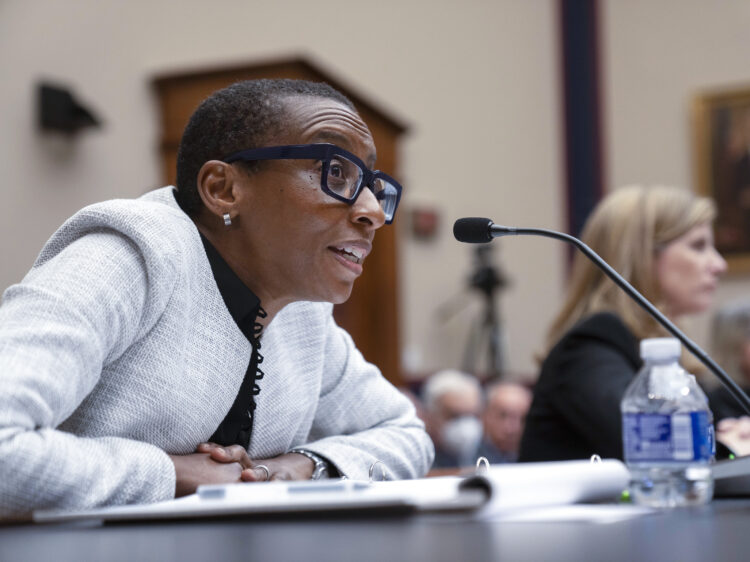By Aaron Miller-
Harvard University is embroiled in a controversy as a complaint submitted on Tuesday, December 19, has detailed over 40 allegations of plagiarism against its president, Claudine Gay.
The complaint, now under the scrutiny of Harvard’s research integrity officer, Stacey Springs, reveals instances where Gay allegedly quoted or paraphrased authors without providing proper attribution. This includes missing quotation marks around phrases or sentences and entire paragraphs being lifted without due credit.
The complaint, which was reviewed by the Washington Free Beacon, points out numerous examples across seven of Gay’s publications, representing nearly half of her scholarly output.
The alleged plagiarism comes to light at a time when Harvard has been grappling with an ongoing investigation into Gay’s work. Earlier this month, the Harvard Corporation initiated an independent review of Gay’s work, focusing on three papers. However, the initial investigation reportedly found “no violation of Harvard’s standards for research misconduct.”
The complainant questions the thoroughness of the investigation, stating, “[I]t is impossible that your office has already reviewed the entirety of these materials.” If the allegations are substantiated, the consequences outlined by the school’s official policies include potential suspension, rank reduction, or termination of employment for Gay.
Notably, one of the complainants, writer Christopher F. Rufo, accused Gay of plagiarizing the language of her acknowledgment from another scholar without proper citation. Rufo highlighted the irony that Gay “couldn’t even say ‘thank you’ without plagiarizing the language.”
Serious questions are now being raised as to how Gay managed to rise up to the rank of president when the bulk of her work has allegedly been plagiarised.
When questioned about university codes of conduct regarding the advocacy of genocide, Gay’s response drew criticism. Her comment, “When speech crosses into conduct, we take action,” was perceived by some as insufficient in addressing the gravity of the question.
Gay faced backlash for what was perceived as her silence on a critical issue despite her prominent platform.
Gay was inaugurated as Harvard’s new president on September 29. In her inaugural address, ‘Courage to be Harvard,’ Gay declared that Harvard’s purpose is ‘to question the world as it is and imagine and make a better one.’
The controversy intensified when, in the aftermath of a Hamas attack that drew support from 31 Harvard student organizations, Congresswoman Elise Stefanik questioned Gay and other university presidents on whether calling for the genocide of Jews constitutes bullying or harassment.
Gay, along with presidents from the University of Pennsylvania and MIT, responded that whether the calling for genocide of the jews constitutes harassment or bullying It depends on the context has drawn wide spread criticism.
Many perceive a reluctance to condemn anti-Semitism and a fear of upsetting pro-Palestine supporters.
The incident further fueled tensions on campus and sparked a broader discussion about the challenges university leaders face in navigating the complexities of Middle East conflicts while maintaining a commitment to inclusivity.
Gay’s previous efforts to address racial injustice and institutional racism at Harvard, as outlined in an August 2020 letter to the faculty, have added to the scrutiny.
The current controversies highlight the delicate balancing act university presidents must perform in addressing competing interests on campus.




